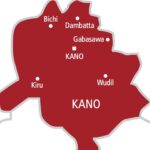Access to funds for female-owned business is crucial if Nigeria is to promote women in business. In recent time, some financial sector players are beginning to recognize this and making deliberate efforts towards this.
First Bank of Nigeria Plc is one of such which rolled out the FirstGem programme to deliberately promote female entrepreneurs in four years of its existence.
- How Fulanis are being stigmatised in Minna IDP camps
- Fulani live in fear in South East following attacks
The product, FirstGem, is an account designed specifically to meet the needs of women, aged 18 years and above.
FirstGem account owners have access to mouth-watering discounts at merchant outlets (spas, salons, grocery stores) that offer lifestyle products and services.
The bank also has the FirstGem Community and encourages women to join. It launched the virtual community in February 2018 with a Google Hangout webinar. The bank said it is a platform where like-minded women irrespective of where they are in Nigeria and abroad, gather to connect, grow and share knowledge on everything about lifestyle, motherhood, career development, entrepreneurship, health, work and family.
According to Chuma Ezirim, Group Executive, e-Business & Retail Products, First Bank, “We are using this online community as the ideal opportunity to position these initiatives to meet the required needs on a wide range of issues affecting women.”
The scheme was launched in October 2016, and has connected to over 61,293 members on its online portal, while empowering women across Nigerian states and the United Kingdom, said First Bank. The FirstGem account monthly growth rate is an average of 2,190 new accounts with an annual savings of N205 million.
According to data obtained from the bank, out of 96,266 FirstGem female entrepreneur customers, 91,745 owners of Micro, Small and Medium-scale Enterprises (MSMEs) who are females, have already benefited from the FirstGem scheme with a total of N58 billion disbursed.
Breakdown of the records indicate that the funds spread across the six geopolitical zones.
The South-south zone has the highest beneficiaries with 36,390 female entrepreneurs representing 40 percent. The next was 35% from the South West which accounts for 32,477 female beneficiaries.
In the North Central, 8,139 women got the FirstGem loans from the bank, representing 9% of the total beneficiaries while the South East has 6,919 (8%). The North West and the North East had a 4% access rate each with 4,008 beneficiaries in North West and 3,809 others from the North East respectively.
At the recent First Gem Annual Conference 4.0 which was held in Lagos with physical attendance and virtual connections, the bank accepted pitches from entrepreneur customers that are targeted to win N1 million seed fund.
In a lecture at the virtual event themed, ‘The Art of Negotiation’, Chairman of First Bank Nigeria, Mrs Ibukun Awosika, who spoke on the theme, ‘Art of Negotiation’, said although women are equally smart, they are still disadvantaged.
She then urged women to embrace technology. “Even if you do not like technology, it is going to affect your life. So, it is your reality and you must rise up and take up the challenge on how you will engage technology.”
The Chief Executive Officer of FirstBank and Subsidiaries, Dr. Adesola Adeduntan, said First Bank also empowered women across its agent banking network.
“We have about 24,500 female agents representing 28 percent of the agents in our network. It gives us much joy to see that more women are embracing this proposition and getting empowered.”
The FirstBank Managing Director designate (who was Deputy MD then), Francis Shobo said: “Through these activities, we spearhead the call on the need to promote women inclusiveness in the country as the role they play towards the continued socio-economic growth and development of any given society cannot be overemphasized.”
A beneficiary, Mrs Beauty Obodo who runs a secondary school said she got First Bank Edu Loan support. “It offered the school help in easing the financial pressure and stress experienced by the school and the school owner whenever school is about to resume.”

 Join Daily Trust WhatsApp Community For Quick Access To News and Happenings Around You.
Join Daily Trust WhatsApp Community For Quick Access To News and Happenings Around You.


